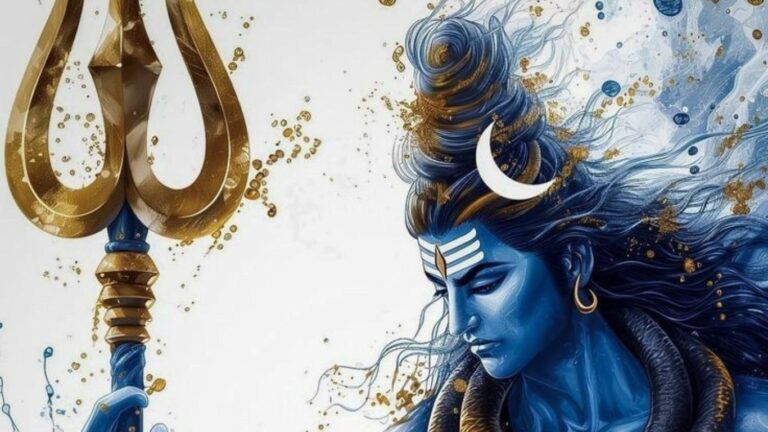
Introduction to Mahadev
He commonly referred to as Lord Shiva, is among the most venerated gods in Hinduism. He is considered the Supreme God, the destroyer of evil, and the transformer of the universe. The word “Mahadev” itself translates to “Great God,” signifying his immense power and importance in the Hindu pantheon. From ancient scriptures to modern-day spiritual practices, Mahadev continues to inspire millions of devotees worldwide.
Significance of Mahadev in Hinduism
he holds a central position in Hindu mythology and religious beliefs. As part of the Holy Trinity (Trimurti) along with Lord Brahma (the creator) and Lord Vishnu (the preserver), Mahadev is responsible for the destruction and transformation of the universe. His divine presence symbolizes the cycle of creation, preservation, and dissolution, which is essential for cosmic balance.
Shiva is often depicted with a third eye, which represents wisdom and insight, a crescent moon on his head, symbolizing control over time, and the river Ganga flowing from his hair, indicating purity and spiritual knowledge. He is also known for his deep meditation in the Himalayas, emphasizing the importance of inner peace and self-realization.
The Many Forms of Mahadev
He manifests in various forms, each representing different aspects of his divine personality:
-
- Rudra – The fierce and destructive form, responsible for annihilating evil forces.
-
- Shankara – The benevolent and compassionate form, guiding devotees toward salvation.
-
- Nataraja – The cosmic dancer, symbolizing the cycle of creation and destruction.
-
- Ardhanarishvara – The androgynous form that represents the union of Shiva and Parvati, embodying the balance of masculine and feminine energies.
-
- Dakshinamurthy – The supreme teacher, imparting wisdom and enlightenment to his followers.
These diverse forms of Mahadev reflect his multifaceted nature and his ability to protect, guide, and transform the universe.
Temples Dedicated to Mahadev
The worshipped across India and beyond, with numerous temples dedicated to him. Several of the most renowned examples consist of:
1. Kashi Vishwanath Temple (Varanasi, Uttar Pradesh)
One of the most sacred temples in India, Kashi Vishwanath is believed to be the holiest abode of Lord Shiva. Devotees visit this temple to attain spiritual liberation (moksha).
2. Kedarnath Temple (Uttarakhand)
Situated in the Himalayas, Kedarnath is one of the twelve Jyotirlingas of lord shiva and is visited by millions of pilgrims every year.
3. Somnath Temple (Gujarat)
One of the oldest temples dedicated to Lord Shiva, Somnath is a significant pilgrimage site and holds a rich historical and spiritual legacy.
4. Brihadeeswarar Temple (Tamil Nadu)
A masterpiece of Chola architecture, this temple is a UNESCO World Heritage site dedicated to Mahadev.
5. Amarnath Cave Temple (Jammu and Kashmir)
The Amarnath cave houses a naturally occurring ice lingam, attracting devotees from around the world during the annual Amarnath Yatra.
These temples serve as spiritual centers where devotees seek Mahadev’s blessings for peace, prosperity, and enlightenment.
His Role in Mythology
He is at the heart of many Hindu legends and stories that illustrate his divine power and compassion. Some of the most famous mythological tales associated with Lord Shiva include:
1. The Agitation of the Ocean (Samudra Manthan)
During the churning of the ocean by the gods and demons, a deadly poison (Halahala) emerged. To save the universe, Mahadev consumed the poison, which turned his throat blue, earning him the name Neelkanth (the blue-throated one).
2. The Marriage of Shiva and Parvati
Goddess Parvati performed intense penance to win Mahadev’s love, eventually leading to their divine marriage, symbolizing the union of energy (Shakti) and consciousness (Shiva).
3. The Birth of Lord Ganesha
Parvati created Lord Ganesha, but He unknowingly beheaded him. Upon realizing his mistake, he restored Ganesha’s life by placing an elephant’s head on him, making him the remover of obstacles (Vighnaharta).
These stories highlight He’s deep wisdom, love, and role as a protector of the universe.
Festivals Celebrated in Honor of Mahadev
Devotees celebrate several festivals to honor Mahadev and seek his blessings:
1. Maha Shivaratri
One of the most significant Hindu festivals, Maha Shivaratri is dedicated to Lord Shiva. Devotees observe fasts, perform Rudrabhishek (special prayers), and chant “Om Namah Shivaya” to seek his divine grace.
2. Shravan Month
The entire month of Shravan (July-August) is considered highly auspicious for worshipping Mahadev. Devotees offer milk, water, and bel leaves to Shiva lingams across temples.
3. Karthigai Deepam
A festival celebrated mainly in South India, devotees light oil lamps to honor Mahadev’s divine presence.
These festivals serve as an opportunity for devotees to deepen their connection with Mahadev and attain spiritual growth.
The Spiritual Teachings of Mahadev
Mahadev’s life and teachings provide profound spiritual wisdom for devotees:
-
- Detachment from Materialism – He, who resides in Mount Kailash, teaches that true peace comes from within, not from material possessions.
-
- Power of Meditation – His deep meditation emphasizes the importance of mindfulness and inner peace.
-
- Equality and Acceptance – He accepts all beings, including demons and gods, teaching the value of universal love and equality.
-
- Destruction Leads to Creation – His role as the destroyer reminds us that endings are necessary for new beginnings.
By following these teachings, individuals can lead a life filled with wisdom, devotion, and self-realization.
The Influence of Mahadev in Modern Culture
His influence extends beyond religious practices and is seen in various aspects of modern culture:
-
- Yoga and Meditation – Many yogic practices are inspired by Shiva’s meditative state.
-
- Art and Literature – Ancient scriptures, sculptures, and modern books continue to depict his greatness.
-
- Cinema and Music – Movies, devotional songs, and chants dedicated to Mahadev have gained popularity worldwide.
-
- Fashion and Tattoos – Many people wear Mahadev-inspired accessories, clothing, and tattoos as a symbol of their devotion.
His presence continues to inspire people from all walks of life, transcending religious boundaries.
Conclusion
The ultimate source of strength, wisdom, and devotion, plays a vital role in Hinduism and spiritual practices. His teachings guide devotees toward self-awareness, inner peace, and liberation. Whether through mythology, temples, festivals, or meditation, He continues to be an eternal force of inspiration.
As devotees chant “Har Har Mahadev”, they reaffirm their faith in the supreme deity, embracing his divine blessings and seeking his guidance in every aspect of life.


